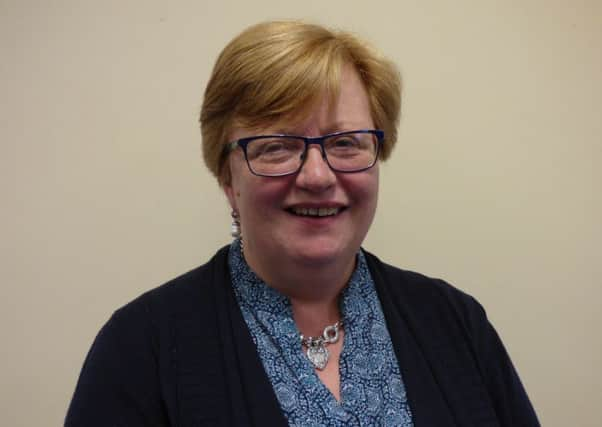Mentors can help ensure you are working smart, not just hard


From: Glarryford, Ballymena
Role: Mentor
Gillian was employed in the banking sector and specifically business banking for over 20 years. After leaving this career to enjoy more flexibility and time with her young family Gillian became self-employed initially as a financial adviser and then became involved with various Rural Development Programmes through Countryside Services.
Gillian grew up on a working farm and married a farmer so she has a key interest in rural communities. Her family are active members of the local Young Farmers’ Club of which she is now Deputy.
Advertisement
Advertisement
Why did you decide to get involved with Rural Support & what does your role as a mentor entail?
I had just completed a Farm Families Mentoring Project with Countryside Agri Rural Partnership when Rural Support were launching their Financial Mentoring Programme. I saw this as an extension to what I had been doing in the past and felt I could bring not only my finance background but also my knowledge of the agri sector and life experiences to assist farmers in need of support.
My first role is to listen and understand and then discuss possible options. Mentoring is a method of encouraging the farmer to identify options available to him. This may also involve referrals to outside agencies who could potentially help however it is the farmer who is ultimately in charge of any decisions or actions.
What sort of situations have you encountered during your time as a mentor so far? What are the main issues and barriers facing your clients?
Situations generally revolve around three main issues –
Advertisement
Advertisement
l Family/ relationship breakdowns to include issues surrounding inheritance
l Current downturn in many farming sectors with insufficient income to pay bills
l Health issues which have impacted both family life and the farm business
Communication barriers between family members would be the main barriers faced.
Advertisement
Advertisement
For anyone considering contacting Rural Support to avail of mentoring can you tell me about the mentoring process and what is involved?
All it requires is an initial call to the Rural Support helpline where you will then be assigned a mentor who will in turn get in touch to arrange the first visit. The mentoring process starts with a general chat to establish the current position and essentially get to know the farmer, his family, the farm business and the financial position. Everything is very relaxed and I always stress that there is no set agenda, I will not be ‘judging’ them and our conversations are completely confidential. We then look at the main issues and ways to improve/resolve the situation. This is followed up by an Action Plan which is prepared for them and incorporates potential actions to be taken and useful contact details.
How do you feel the mentoring process is helping individuals?
For many farmers the only people who they discuss their finances with are their accountants and their bank manager. The mentoring programme provides a framework where they can be completely open and honest, knowing that they are not being judged or indeed charged for the service. Farming is a very lonely career and many find a great weight is taken off their back simply by bringing issues out into the open.
Advertisement
Advertisement
What would you say to someone who is experiencing farm finance or debt worries?
They are not alone – increasing numbers of farmers are worried about debt although some appear to handle it better than others. The most important thing to do is to share those worries with your family, accountant or mentor. If you let these worries take over they begin to impact on other aspects of your life and this may include your health.
What issues do you think farming families will face in the future? What can be done to minimise financial problems?
Inheritance planning will be key and I would strongly encourage all family members to make a will and keep it up to date, reviewing it regularly. This should minimise problems within families and indeed the ‘taxman’. I would also encourage farmers to be transparent with regard to the contents so that there are no surprises when the will is read as this has been the cause of many family disputes.
Advertisement
Advertisement
Volatility within world markets will have a major impact on farmgate prices and when planning this should always be a consideration. We are also currently facing a sharp reduction in the Euro which will impact cashflow in many ways to include the Single Farm Payment. Talk to your accountant and seek advice not just a set of figures at the end of the year. Ensure that you are working ‘smart’ and not just hard.
Attend to your paperwork as you will be inspected and ensure where possible that you are not faced with financial penalties. If you aren’t comfortable with the paperwork there are people out there who can help you.
Sincere thanks to Gillian Reid for this interview.
If you or someone you know could benefit from talking with someone from Rural Support or if you would like to avail of the financial mentoring currently being offered please contact Rural Support’s helpline (0845 606 7 607, 8am-11pm daily). All calls are confidential.